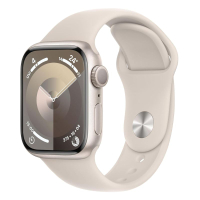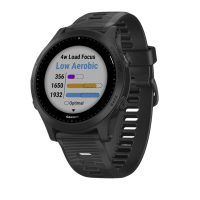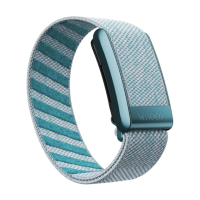Are fitness trackers worth it? Here's what I've learnt after 5 years of using one 24/7
Are fitness trackers worth it? From motivation to accuracy, Health Editor Grace Walsh weighs up the pros and cons of buying a fitness tracker in 2024
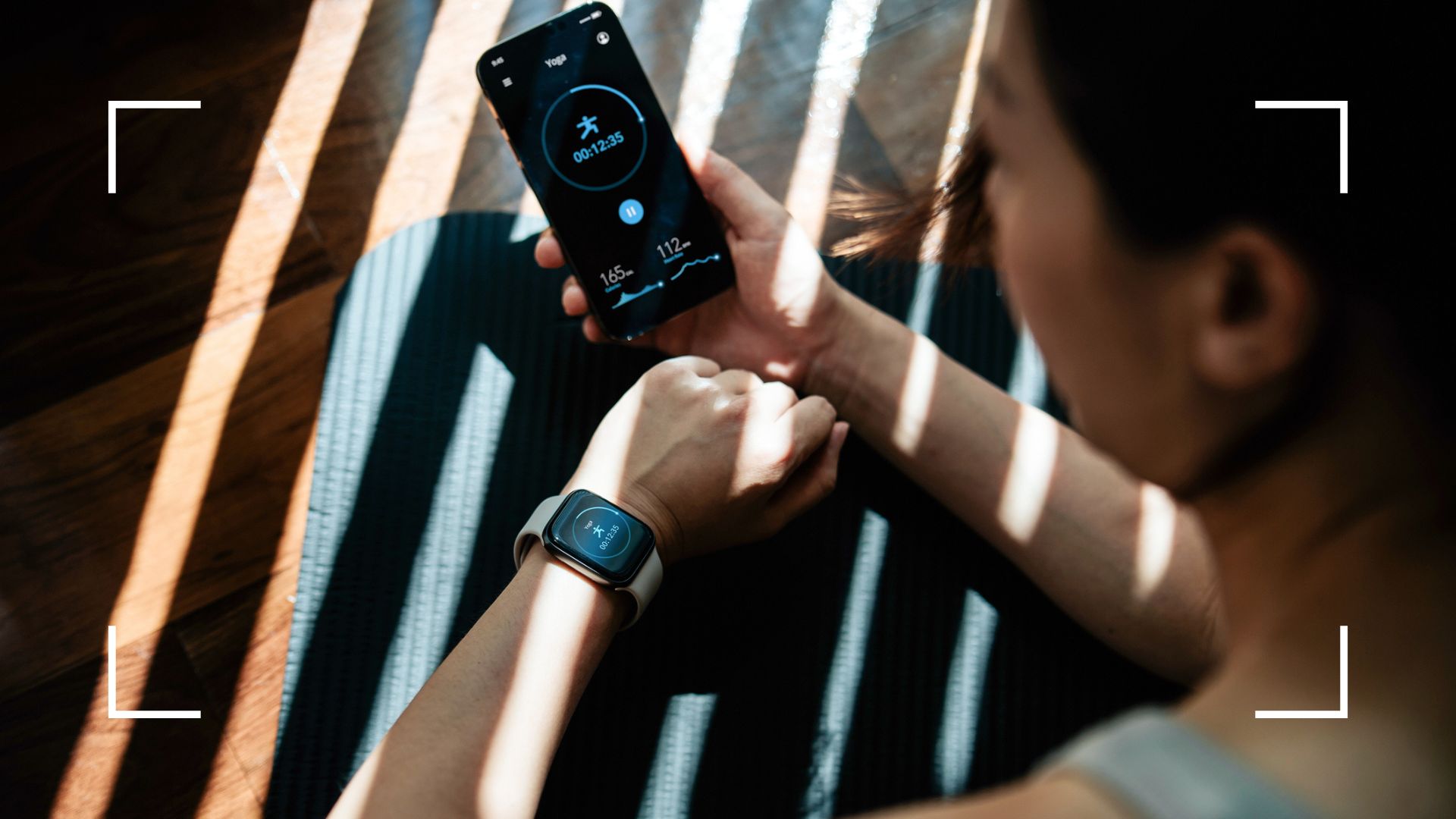

Are fitness trackers worth it? With so many options on the market, from watches to rings, it's not a question too many people are asking these days - but maybe they should.
While the best fitness trackers and smartwatches sit among the most popular health and wellbeing accessories around, with all the big names in tech serving up their version in the last decade, they aren't for everyone. If not for the obsessive nature they can bring out in even the most blasé of wearers, the hefty price tag can turn an exciting purchase into a waste of money if you don't use it more than a few times.
I'll admit it right now - I'm a fitness tracker enthusiast. Perhaps it wouldn't even be so wrong to call myself an obsessive. As woman&home's digital health editor, this is hardly surprising. I use my tracker to record my steps, runs, gym sessions, sleep cycles, and almost anything else, so I wear my tracker almost 24 hours a day across the week. I've also had hands-on experience with close to 80 different fitness trackers in the last five years, ranging from the newest Apple Watch to all the best Fitbits. In that time, I've discovered a few favourites that are well worth spending money on - and the key reasons to avoid trackers entirely.
Are fitness trackers worth it?
Points to consider:
1. For exercise motivation
2. For improving your fitness
3. For outdoor exercise
4. For getting better sleep
5. For 100% accurate data
6. For intuitive exercise
7. For budget-friendly shopping
The bottom line
Are fitness trackers worth it?
For exercise motivation
There's no way around it - fitness trackers are possibly one of the best motivational tools for those new to exercise or looking to get back into a routine after a long break.
Daily, you're more likely to hit numerical fitness goals - like doing 10,000 steps a day - if you can see how far you've come and how far you've got left to go. Fitness trackers don't only help with this by showing you the data but many offer the choice to turn on notifications that will tell you when you haven't moved in a while. Annoying for some people and motivating for others. You'll also find on-screen rewards like badges and reactive displays for meeting your goal for the day, which can feel like a satisfying box ticked.
A review by Flinders University looked at 12 studies on the topic of fitness tracker-related workout motivation where most participants were women over 40. The review found that when participants wore a fitness tracker, they did an hour more exercise a week than those who didn't wear one. Given that the NHS recommends 2.5 hours of moderate exercise per week, this can go a long way.
The most useful device for this, I've found over the years, is the Apple Watch. While the latest Fitbit, Garmin, Polar and other devices will offer notifications and on-watch feedback, the Apple Watch has the 'Close Your Rings' challenge - an initiative that encourages users to meet their stand, move, and exercise targets for the day with on-screen rings that etch closer to meeting at either end the more you do during the day.
Sign up to our free daily email for the latest royal and entertainment news, interesting opinion, expert advice on styling and beauty trends, and no-nonsense guides to the health and wellness questions you want answered.
Are fitness trackers worth it? Yes, if knowing how close you are to reaching your goals pushes you out the door for one last walk or workout for the week and motivates you to move more, a fitness tracker will be a good investment.
Apple Watch Series 9: From £399 at Apple
Complete with all the latest fitness tracking features for deeper insights than ever before, a speedier processor, on-watch Siri, and useful lifestyle assistance features, this is the best Apple Watch to buy right now.
For improving your fitness
Unless you've got a personal trainer on hand, you're a whizz with blood oxygen level tracking (to work out how efficiently oxygen moves around your body, a key feature of fitness), or you're very in touch with how your body changes week-to-week, you're unlikely to be able to tell what effect your individual workouts are having on your fitness levels.
I'm currently wearing the Garmin Forerunner 945 for this exact reason. One touch of a side button reveals my current Training Status, which switches between Progressive, Maintaining, and Recovery depending on where I am in my training. I click into the status and the Garmin Coach automatically reveals why I'm in this stage and what I need to do to improve. For example, if I've had a good mixture of slow, easy runs, strength training sessions, and faster, more intense workouts, then I'll likely be improving my fitness so the Status switches to green (Progressive). That means I'm headed in the right direction with my training to improve my fitness. If I've had an off week or taken a holiday, I'll be in Recovery. It's not demotivating as it's not a reflection of my actual fitness, but rather my recent training. I find it very useful to fully understand how I've been exercising recently and what I need to do more of.
Some fitness trackers, such as the Garmin Venu Sq 2 and 3 offer workouts on-wrist for users to follow along with. Others, such as those in the Fitbit range, offer workouts via the connected app (on Premium) thanks to partnerships with workout apps like Les Mills.
Are fitness trackers worth it? Yes, if you exercise regularly, have a goal in mind and want to learn more about your workouts and how to improve your fitness, an advanced fitness tracker (like the Garmin Forerunner 945 or Polar Vantage V3) can make a real difference.
Garmin Forerunner 945: £499 at Amazon
This is my favourite watch for keeping a close eye on my fitness. Performance monitoring features include VO2 Max and training status, with on-wrist turn-by-turn mapping and navigation, and an easy to use display without touchscreen.
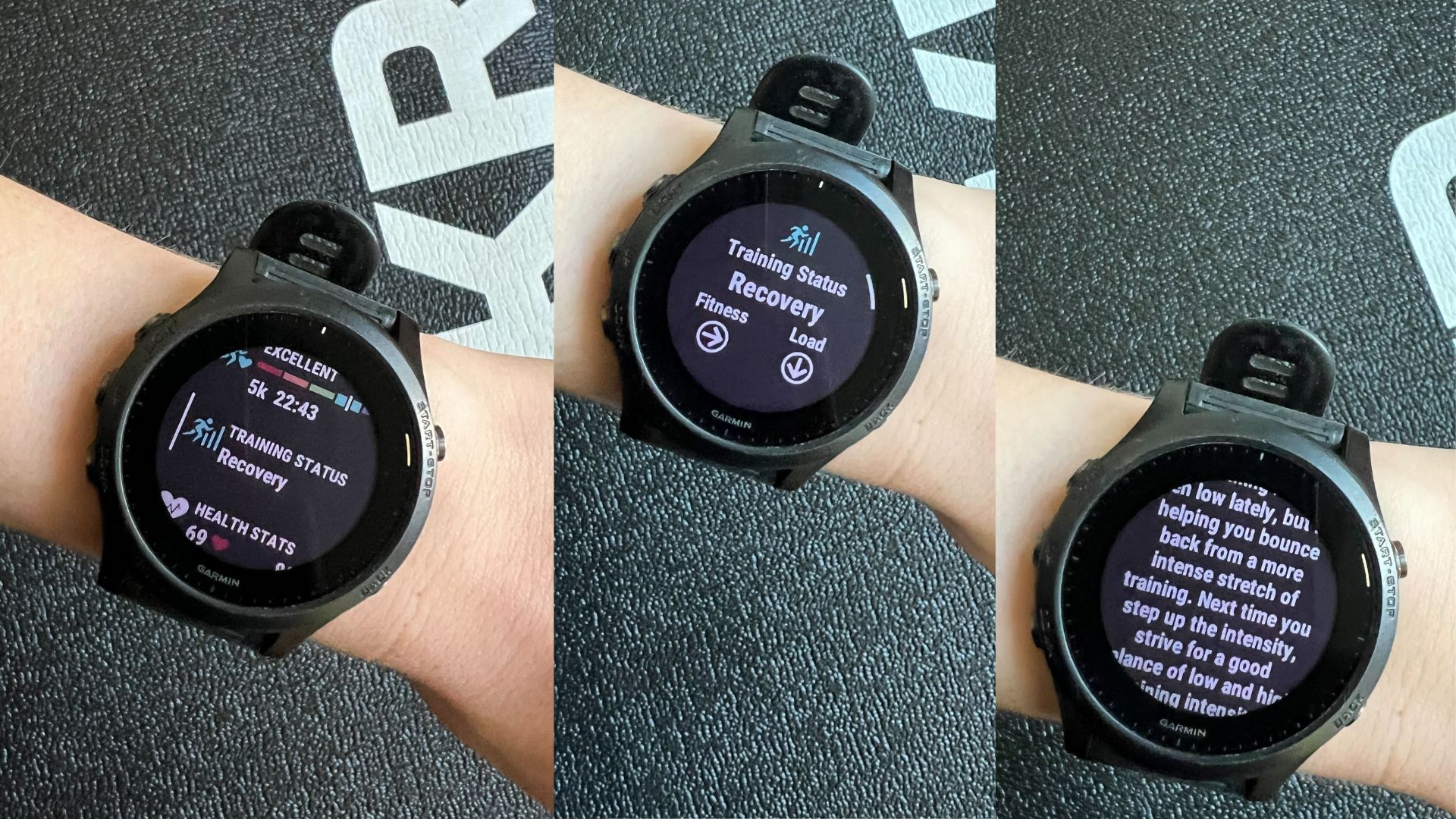
Training Status on models of Garmin can help you understand how to strike balance between your workouts.
For outdoor exercise
If you find yourself regularly exercising outdoors - hiking, trail running, or walking as a workout - then a fitness tracker may be a worthy investment for more reasons than just tracking your fitness data. These days, many trackers offer similar features to smartphones when it comes to weather reports, GPS, and navigation.
For me, the most useful fitness trackers for outdoor exercise are two of the new Fitbits - the Versa 4 and Sense 2 - along with the Apple Watch Series 9 and any Garmin devices that have on-wrist map features enabled. With the Fitbit devices or the Apple Watch, you can follow a Google Maps route (or a route created by one of your favourite running apps) with turn-by-turn navigation coming through your headphones.
The Garmin Forerunner 945 or 965 are also particularly great options for this. They offer users the chance to pre-program a route on the Garmin Connect app, load it onto their watch and follow a map while they are on the move. The watch offers turn-by-turn navigation and prompts users when they've gone off course.
Are fitness trackers worth it? Yes, if you spend time exercising outdoors and want easy navigation without having to take your phone out then a fitness tracker can be a valuable tool to help you get the most from your day out.
For getting better sleep
Fitness trackers focus on three of the four key pillars of health and wellbeing: exercise, sleep, and stress. In recent years, there have been more new features to help users learnt how to sleep better with a fitness tracker than ever before.
In this area though, I've found most fitness trackers are similar. Whether you opt for Fitbit with a Fitbit Premium subscription, or a Garmin or Polar device, you'll receive pretty much identical - but still very useful - insights into your sleep cycle. You'll be able to see how long you've slept, a breakdown of your sleep (REM, light, and deep sleep), and receive a Sleep Score that rates your night out of 100. Some devices go further and provide tips for a better bedtime routine, such as the Apple Watch in conjunction with your iPhone. You can set a bedtime and wake-up time, and the two work together to dissuade you from reaching for your device too late into the night.
The only fitness tracker worth considering if you're serious about tracking your sleep and rest levels above all else is the WHOOP 4.0. While it does offer features like heart rate monitoring, step count, calories burned etc like any other tracker, its main focus is on rest and recovery. On the home screen of the app, instead of these metrics, you'll be told your recovery levels versus your strain, with tips to help you get back in balance. It's a faceless device as well, so there's no AMOLED or LED display to accidentally shine in your eyes in the middle of the night and wake you up.
Are fitness trackers worth it? Yes - but only if you wear them to bed every night. Naturally, the tracker can only record your breathing and heart rate to determine your sleep cycle if you have it around your wrist while you sleep. If you think you'd find this uncomfortable or something is stopping you from wearing your device in bed then it may not work for you.
It's also worth bearing in mind that no fitness tracker is 100% accurate. If your device slips away from your wrist for an hour or so during the night, you'll lose any available data for that time.
If you do decide to wear your watch at night, it's also important to know how to clean a Fitbit or similar device. Otherwise, you may carry bacteria from the outside world into bed with you.
WHOOP 4.0: £229 at Amazon
Along with all the fitness tracking data you could need - insights into your heart rate, sleep, and stress scores - the WHOOP weighs up your overall strain and recovery to provide detailed insights into how you can better your daily habits overall.
What are the disadvantages of using a fitness tracker?
For totally accurate data
Unfortunately, fitness trackers don't promise 100% accuracy. Having the numbers on the screen is hugely motivational but they may not be entirely correct, following conclusions from several studies over the years.
For example, researchers from McMaster University reviewed the Fitbit Charge and Fitbit Charge HR, finding them to have "good accuracy" for measuring step count. They also reviewed the Apple Watch and found it was accurate at measuring heart rate. However, none of the three devices proved accurate in measuring energy expenditure (calories burnt).
Researchers at Stanford University looked at the accuracy of fitness trackers when it came to recording calorie burn and found they could be off by as little as 27% or as much as 93%, depending on the model.
A study by Yale School of Medicine looked at how fitness trackers record sleep and found that they are only 78% accurate when recording sleep and wake-up times.
Are fitness trackers worth it? It depends - if your main aim in buying a fitness tracker is to manage your calorie deficit for weight loss then there are better, more accurate nutrition-related tools you can use, like the best calorie counter apps. However, as noted, they are great motivational tools. Losing weight is a blend of more movement and dietary changes so if a fitness tracker motivates you to do more exercise then it can be a very worthwhile purchase.
For intuitive exercise
At the end of the day, exercise is supposed to make you feel good both mentally and physically. A large part of reaching this 'good' feeling created by pumping endorphins is exercising intuitively - i.e. being guided by how you feel. If you stop feeling good when you're working out - beyond the classic out-of-breath-feeling, you should stop. However, having a fitness tracker can encourage you to push past this feeling for better or for worse.
It can also change how you feel about your health post-night sleep or exercise session. I find this is particularly the case when it comes to my sleep. Whether I'm using the wellbeing-specific Fitbit Sense 2, a pick from the Garmin Vivomove series, or an Apple Watch, I do find my sleep score to be largely in the right ballpark. However, I have some days when I wake up feeling good - only to find that I've only slept for four or five hours, which makes me immediately feel tired and it plays on the back of my mind throughout the day. Other times, while working out, my heart rate doesn't connect properly or the GPS is inaccurate so the distance or pace of my run is off, where otherwise I may have intuitively gone on how my body was feeling.
Are fitness trackers worth it? Yes - although they limit the amount you can exercise intuitively, it is possible to tune out the noise. I'd always suggest listening to your body first and your watch later, especially when it comes to metrics like sleep and stress.
For budget friendly shopping
It's fair to say that most fitness trackers are not kind to those looking to shop on a tight budget. Unfortunately, thanks to the advanced sensors and related technology, any fitness tracker worth having is going to be around £100 at the very minimum, stretching into the hundreds for more premium picks.
While the saying 'you get what you pay for' does apply to fitness trackers, you can get truly excellent fitness trackers for under £150. For example, the Fitbit Charge 6. This device is one of the Fitbit types that covers all the basics with reliability. You can use it to track your sleep, monitor your stress, and record your activity levels throughout the day to your heart's content. You can even connect it via Bluetooth to exercise machines like bikes and treadmills for better readings during stationary exercise - a feature I was very impressed with when I tested the watch. I'd be confident swapping most of the fitness trackers I've used over the years for this one, with the only downside being the small screen size.
Devices that reach the £400 and beyond mark may be worth the money for some people though. These trackers tend to offer truly advanced, unique, and often sport-specific insights more often than not. For example, the Apple Ultra Watch 2 starts at £799 and offers users highly detailed insights into their fitness and sensors for tracking running in building-dense cities, hiking, and diving. It also has complete assimilation with other products in the premium Apple family range.
Are fitness trackers worth it? It depends - are you going to fully make the most of your chosen tracker? If just one element of your chosen device appeals to you or you don't think you'll wear it all the time (which is needed for the most accurate results), then it's perhaps not a device that's quite right for you. If you've been nodding along to all the positives of having a fitness tracker then the investment may be a good choice for you.
Thinking about buying? Take a look at this tried-and-tested pick of budget-friendly fitness trackers:
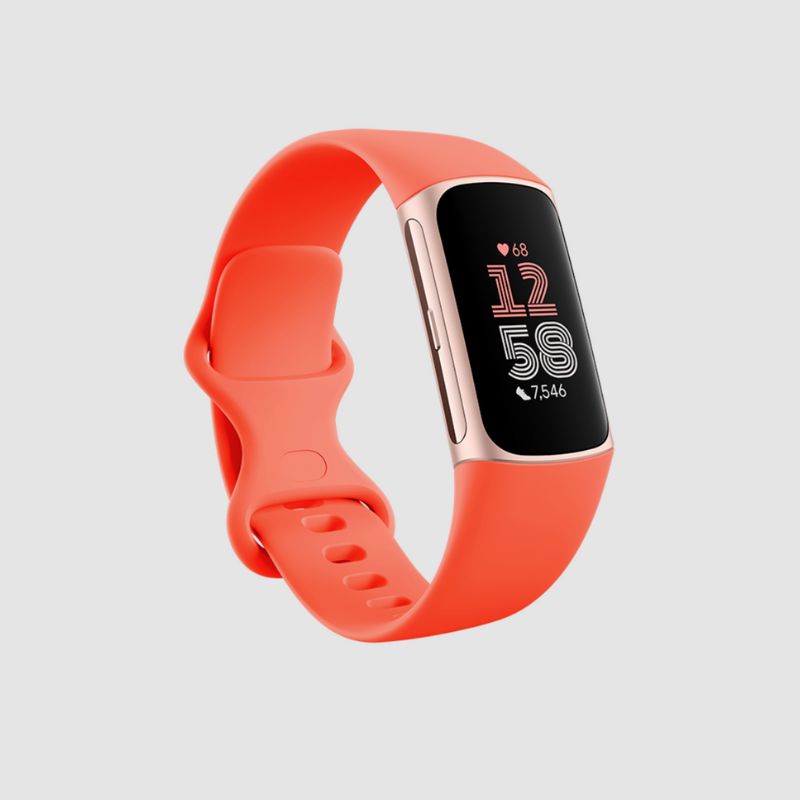
The Fitbit Charge 6 is a supreme upgrade from the Fitbit Charge 5, with better heart rate monitoring and Bluetooth connectivity than the previous models, offering users the chance to streamline their fitness tracking in a new way. Available in three colours, including Coral and Black.
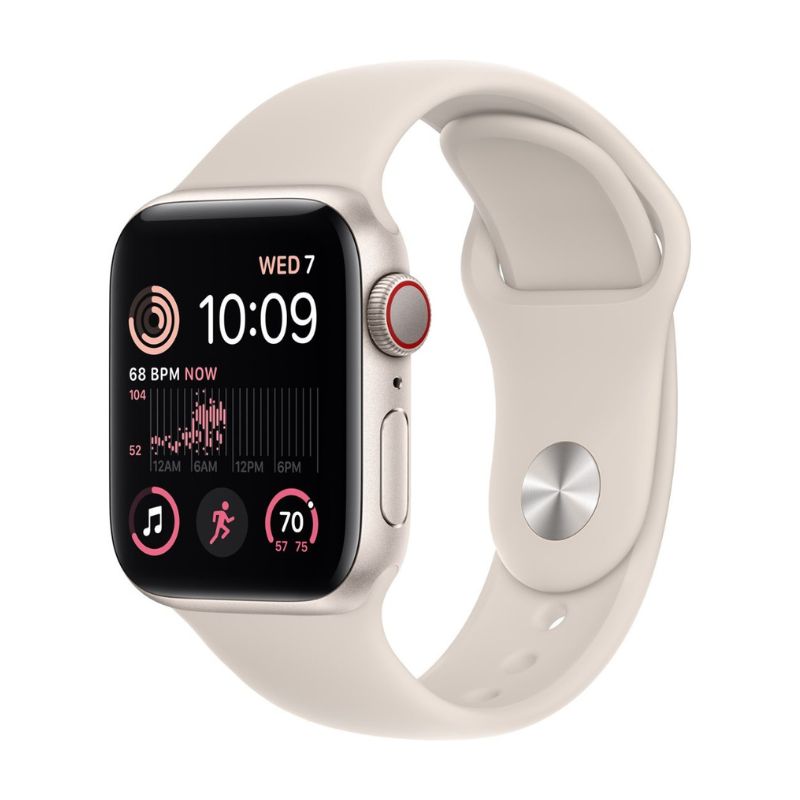
If you want to take advantage of all the integrated lifestyle assistance features and Apple assimilation offered by the Apple Watch, you can do so for under £250 with the Apple Watch SE. It covers all the basics without the flare and advanced features of the premium models.
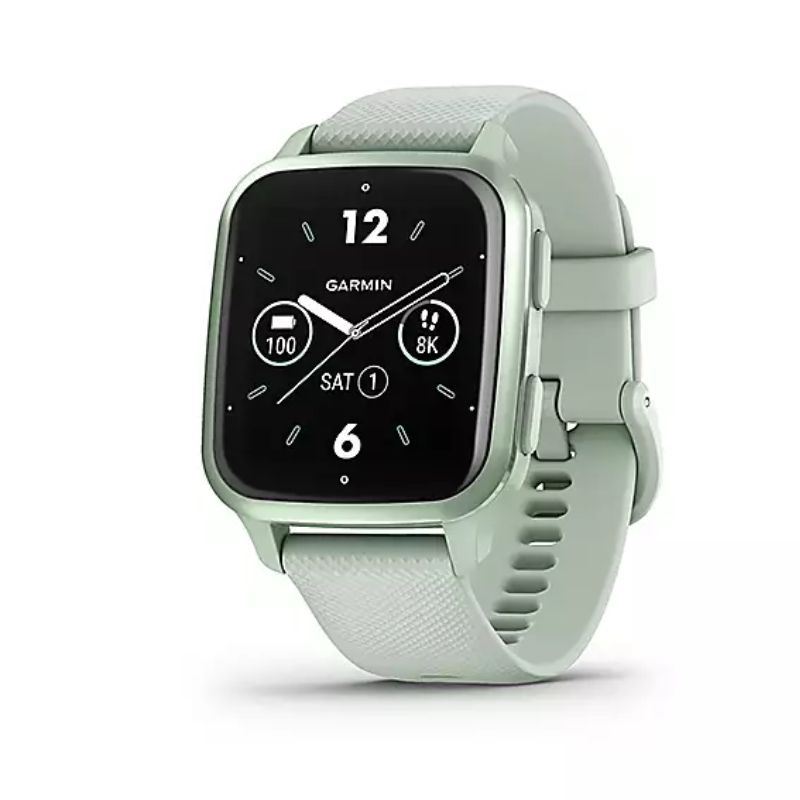
The Garmin Venu Sq 2 blends the worlds of advanced fitness tracking and easy usability with an impressive 11 days of battery life, over 25 different exercise modes to choose from, and on-demand blood oxygen saturation level readings. It's also very lightweight and available in multiple colours.
The bottom line
Focus on the features
Fitness trackers can be a big investment but if you have a specific health or fitness goal in mind - whether that's doing your first 10km run, setting up a consistent sleep schedule, or simply improving your fitness - and you find data to be motivating, then it's a worthy investment. Also, you don't need to pay hundreds to get a tracker that just covers the must-have basics.
Over the past five years, I've found these devices have kept me on track, encouraging me to get that extra few hundred steps in a day and go to bed earlier, and they have even pushed me to run a little faster and further at times.
While I believe that there is a fitness tracker out there for everyone, not every tracker is suited to every person. It's always best to weigh up the features you want and what budget you have to spend over the brand notability and even the appearance of the device.
For example, features like on-wrist mapping may be essential for some people but if you tend to choose home workouts over hikes outdoors, it's not going to be very useful. You may find a tracker with additional lifestyle assistance features - like a stopwatch and timer - more beneficial, so opting for a tracker that has this feature will benefit your life and fitness goals more.
But don't just take my word for it - trainers agree too. "Each product offers unique features and capabilities," says Haylene Ryan-Causer, personal trainer and founder of Café Volonte. "The choice is very individual based on specific fitness goals or personal style. As a trainer, I feel that fitness trackers not only give individuals a lot of information but also accountability for their health and fitness outside of the gym."
Personal trainer Andrew Hill agrees. "By and large, fitness trackers are an amazing tool but they aren't a magic ticket to a healthier lifestyle. The tool is only as good as the person using it and it's all well and good owning a fitness tracker, but if you're not actively, routinely using it and reviewing your data, you're not going to be able to sufficiently track your progress towards a healthier, better version of you."

Grace Walsh is woman&home's Health Channel Editor, working across the areas of fitness, nutrition, sleep, mental health, relationships, and sex. She is also a qualified fitness instructor. In 2025, she will be taking on her third marathon in Brighton, completing her first ultra marathon, and qualifying as a certified personal trainer and nutrition coach.
A digital journalist with over seven years experience as a writer and editor for UK publications, Grace has covered (almost) everything in the world of health and wellbeing with bylines in Cosmopolitan, Red, The i Paper, GoodtoKnow, and more.
